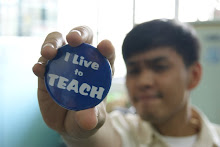Rudyard Kipling was born in Bombay in India in 1865. The Indian city of Bombay is now called Mumbai. He was born near the end of 1865, on the 30th of December. He lived in India for the first six years of his life. Then his parents sent him to England. He didn’t like England because it was cold and dark. Rudyard dreamed of going back to India.
Rudyard finished his school and travelled back to India when he was 17 years old. He found a job as a reporter working for English language newspapers in India. Rudyard wrote newspaper reports about things which happened in India but he wanted to write stories and poems. He finished his first book of poems, Departmental Ditties, in 1886 when he was 21 years old.
He started to write short stories for the newspaper and soon his stories were very popular. Lots of people liked to read his stories and Rudyard Kipling became famous in India. A lot of his stories were about the lives of soldiers and their families in India.
Rudyard Kipling also liked to write stories for children. In 1894, he wrote The Jungle Book.
Rudyard Kipling wrote many more stories for children such as How the leopard got his spots and How the camel got his hump. He called these Just So Stories and they are popular with children all over the world.
Take Home Quiz - To be submitted on Feb. 2, 2011 - Wednesday.
Vocabulary - In one or two words define the following terms from the poem.
1: doubt, allowance
2: triumph, imposters, disaster, knaves
3: pitch-and-toss, sinew
4: virtue, foes
2: triumph, imposters, disaster, knaves
3: pitch-and-toss, sinew
4: virtue, foes
Word Pictures - Word pictures is another way of saying imagery. Imagery or figurative language helps us form a picture of what the author is trying to present. Explain what these word pictures mean.
1: keep your head, wait and not be tired of waiting
2: triumph and disaster, trap for fools, worn out tools
3: never breathe a word about your loss, nerve and sinew, hold on
4: walk with kings, nor lose the common touch, unforgiving minute
2: triumph and disaster, trap for fools, worn out tools
3: never breathe a word about your loss, nerve and sinew, hold on
4: walk with kings, nor lose the common touch, unforgiving minute
Comprehension Questions:
1. Who is the speaker?
2. What does the poem reveal about the speaker’s character?
3. Is the speaker addressing someone in particular or is it to anyone?
4. Does the poem have a setting?
5. Is the poem about a particular event? Is the event past or present? If it is about a past event, does the
remembrance of the event have a particular meaning to the speaker?
6. Is the theme of the poem stated directly or indirectly? Why?
7. What point of view or perspective is the speaker?
8. How did you respond to the poem when you read it the first time?
2. What does the poem reveal about the speaker’s character?
3. Is the speaker addressing someone in particular or is it to anyone?
4. Does the poem have a setting?
5. Is the poem about a particular event? Is the event past or present? If it is about a past event, does the
remembrance of the event have a particular meaning to the speaker?
6. Is the theme of the poem stated directly or indirectly? Why?
7. What point of view or perspective is the speaker?
8. How did you respond to the poem when you read it the first time?
Want to read more? Rudyard Kipling - If






